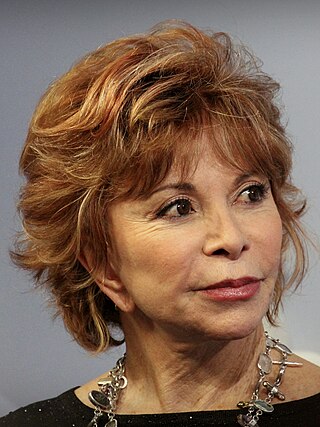
Isabel Angélica Allende Llona is a Chilean writer. Allende, whose works sometimes contain aspects of the genre magical realism, is known for novels such as The House of the Spirits and City of the Beasts, which have been commercially successful. Allende has been called "the world's most widely read Spanish-language author." In 2004, Allende was inducted into the American Academy of Arts and Letters, and in 2010, she received Chile's National Literature Prize. President Barack Obama awarded her the 2014 Presidential Medal of Freedom.
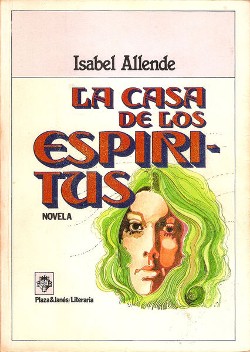
The House of the Spirits is the debut novel of Isabel Allende. The novel was rejected by several Spanish-language publishers before being published in Buenos Aires in 1982. It became an instant best-seller, was critically acclaimed, and catapulted Allende to literary stardom. The novel was named Best Novel of the Year in Chile in 1982, and Allende received the country's Panorama Literario award. The House of the Spirits has been translated into over 20 languages.

The Book of Laughter and Forgetting is a novel by Milan Kundera, published in France in 1979. It is composed of seven separate narratives united by some common themes. The book considers the nature of forgetting as it occurs in history, politics, and life in general. The stories also contain elements found in the genre of magic realism.

Zorro is a 2005 novel by Chilean author Isabel Allende. Its subject is the American pulp hero Diego de la Vega, better known as El Zorro. He first appeared as a character in Johnston McCulley's novella The Curse of Capistrano (1919). His character and adventures have also been adapted for an American TV series, other books, and cartoon series.

Mirada de mujer is a Mexican telenovela premiered on Azteca Trece on June 9, 1997 and concluded on June 5, 1998. Based on the Colombian drama, entitled Señora Isabel written by Bernardo Romero Pereiro and Mónica Agudelo. The show is produced by Argos Comunicación and TV Azteca. It stars Angélica Aragón, Ari Telch, and Fernando Luján as the titular's character.

Argentina Brunetti was an Argentinian stage and film actress and writer.

Daughter of Fortune is a novel by Isabel Allende, and was chosen as an Oprah's Book Club selection in February 2000. It was published first in Spanish by Plaza & Janés in 1998. Isabel Allende says "of her female protagonist in Daughter of Fortune, Eliza, that she might well represent who the author might have been in another life." "Allende spent seven years of research on this, her fifth novel, which she says is a story of a young woman's search for self-knowledge." "Allende also believes that the novel reflects her own struggle to define the role of feminism in her life." Allende also wrote a sequel to Daughter of Fortune entitled Portrait in Sepia which follows Eliza Sommers' granddaughter.

Luna is a young adult novel, by Julie Anne Peters, and was first published in 2004.
Pecado de Amor is a Venezuelan telenovela written by Mariela Romero and aired by Venevisión from 8 November 1995 to 21 January 1997, thus making it the longest running telenovela Venevisión has ever made. This telenovela lasted 325 episodes and was distributed internationally by Venevisión International.

White Lady is a 2006 Filipino supernatural horror-drama film directed by Jeff Tan. It is Tan's first feature length film as he worked mostly on music videos.

Farming of Bones is a work of historical fiction by Edwidge Danticat, published in 1998. It tells the story of an orphaned young Haitian woman living in the Dominican Republic who gets caught up in the carnage of the Parsley massacre during the dictatorship of Rafael Trujillo.
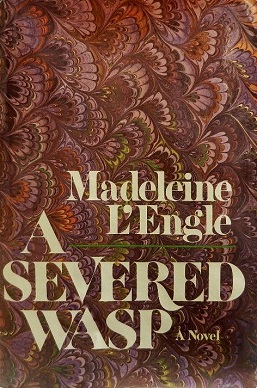
A Severed Wasp (1982) is a novel by Madeleine L'Engle. It continues the story of a pianist, Katherine Forrester, who was first seen in The Small Rain. Now a widow in her seventies, Katherine Forrester Vigneras returns to New York City in retirement from concert touring in Europe. There she encounters Felix Bodeway, an old friend from her Greenwich Village days, who is now the retired Episcopal Bishop of New York. He asks Katherine to give a benefit concert at the Cathedral of St. John the Divine. It turns out to be an unexpected challenge, full of new friends and mysterious dangers.

For Mónica Naranjo album see Palabra de mujer

Eva Luna is a 2010 telenovela produced by Venevisión International in collaboration with Univision Studios, starring Blanca Soto and Guy Ecker as the main protagonists, and Julian Gil and Susana Dosamantes as the main antagonists. It is a remake of Telemundo's 1997 telenovela Aguamarina. Univision aired Eva Luna weeknights at 8pm/7pm central from November 1, 2010 to April 11, 2011, and a TV-14 rating was applied for all episodes. Mexico's Canal de las Estrellas aired Eva Luna from September 19, 2011 to January 6, 2012.
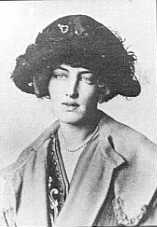
Gladys Marie Spencer-Churchill, Duchess of Marlborough was a French American aristocrat and socialite. She was the mistress and later the second wife of Charles Spencer-Churchill, 9th Duke of Marlborough.
Marisol was a Brazilian primetime TV Series that aired on SBT starring Bárbara Paz, Carla Fiorini, Adriana Ferreyr, Carlos Casagrande, and Glauce Graieb. Based on the original Mexican by Inés Rodena.
Guerra de mujeres is a Venezuelan telenovela written by César Miguel Rondon and Monica Montañés, and it was produced by Venevisión in 2001.
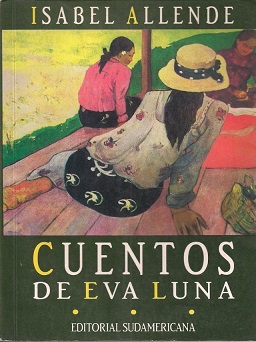
The Stories of Eva Luna is a collection of Spanish-language short stories by the Chilean-American writer Isabel Allende. It consists of stories told by the title character of Allende's earlier novel Eva Luna. The literary critic Bárbara Mujica wrote: "The Chilean author presents her stories through the age-old device used by Scheherazade: the narrator tells them to her lover to entertain him. Like the famous Arabic tales, these stories combine fantasy with biting social satire and psychological insight."
Oluremi Fela Faust, known professionally as Mimi Faust, is an American reality television personality who stars on the VH1 program Love & Hip Hop: Atlanta. She first appeared as the long-time girlfriend of producer Stevie J.

Luna Lovegood is a fictional character in the Harry Potter book series by J. K. Rowling. She first appears in Harry Potter and the Order of the Phoenix, where she is described as having straggly, waist-length dirty-blond hair and a dazed, dreamy look on her face. She was sorted into Ravenclaw in 1992.
















